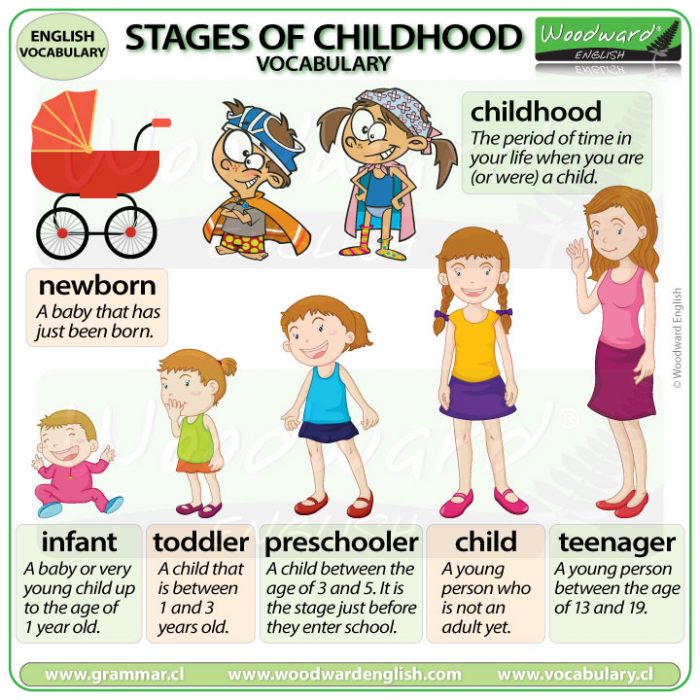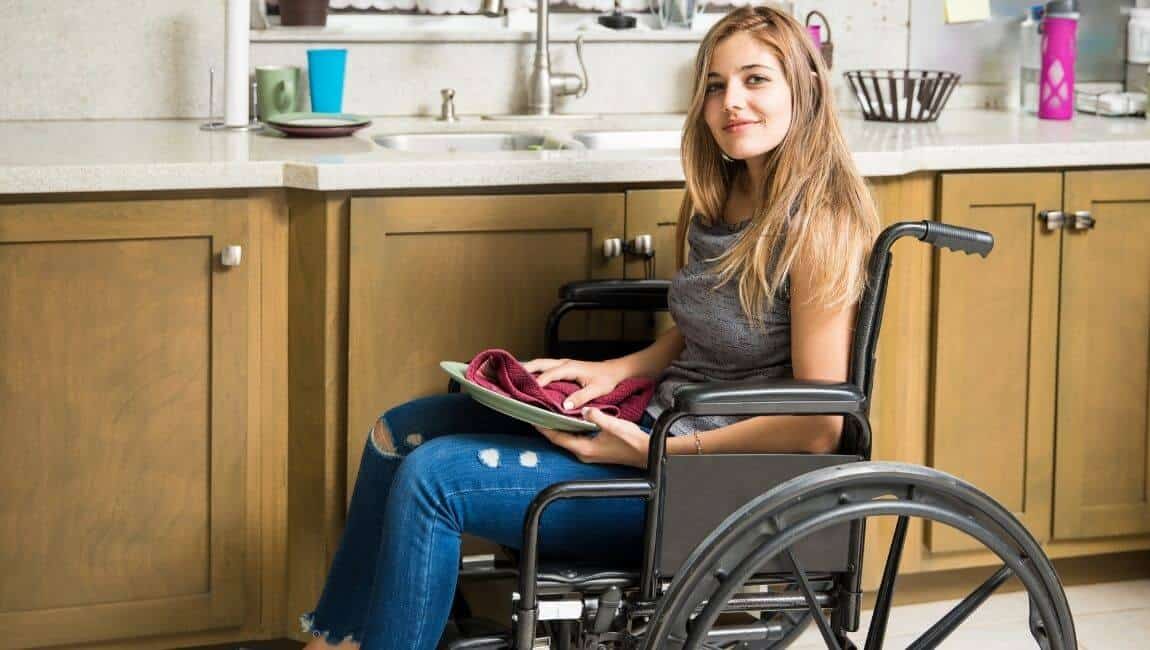Understanding the Ideal Age for Independence
Emotional maturity, financial stability, and personal responsibility are key factors that determine when a person is ready to move out and start their independent life. While there is no one-size-fits-all answer to the question of at what age are you able to move out, research suggests that most people are developmentally ready to take on the responsibilities of independent living between the ages of 18 and 25.
However, this age range can vary significantly across cultures and individuals. For example, in some cultures, it is common for children to live with their parents until they get married, while in others, it is expected that they will move out and start their own households as soon as they finish high school.
Moreover, individual differences in personality, cognitive ability, and life experience can also influence a person’s readiness for independent living. Some people may be more resilient and better equipped to handle the challenges of independent living at a younger age, while others may need more time to develop the necessary skills and maturity.
Ultimately, the ideal age for independence is not just about reaching a certain age, but about acquiring the necessary skills, knowledge, and emotional maturity to take on the responsibilities of independent living. By understanding the factors that influence readiness for independence, individuals can make informed decisions about when to take the leap and start their own households.
It is also worth noting that, in recent years, there has been a trend towards delayed independence, with many young adults choosing to live with their parents or other family members for longer periods of time. This trend is often driven by economic factors, such as high housing costs and student debt, as well as changing social norms and expectations around independence.
Regardless of the age at which a person chooses to move out, it is essential to have a clear understanding of the responsibilities and challenges involved in independent living. By being aware of these factors, individuals can make informed decisions about their living arrangements and take the necessary steps to prepare themselves for the transition to independence.
How to Assess Your Readiness for Independent Living
To determine if you are ready to move out and start your independent life, it’s essential to evaluate your readiness in several key areas. Here’s a checklist of questions to help you assess your preparedness:
Financial Resources:
- Do you have a stable income or a reliable source of financial support?
- Have you created a budget and started saving for independent living expenses?
- Do you have a plan for managing debt and credit?
Time Management Skills:
- Can you prioritize tasks and manage your time effectively?
- Do you have a system for staying organized and keeping track of responsibilities?
- Can you balance work, leisure, and personal activities?
Conflict Resolution Strategies:
- Do you know how to resolve conflicts with roommates or neighbors?
- Can you communicate effectively and assertively?
- Do you have a plan for managing stress and emotions?
Emotional Maturity:
- Are you able to take responsibility for your actions and decisions?
- Can you set boundaries and prioritize your own needs?
- Do you have a support network of friends, family, or a therapist?
By honestly evaluating your readiness in these areas, you can determine if you are prepared to take the leap and move out. Remember, it’s essential to be realistic about your abilities and to create a plan for addressing any areas where you may need improvement.
When considering at what age are you able to move out, it’s crucial to remember that readiness is not solely determined by age. Rather, it’s about acquiring the necessary skills, knowledge, and emotional maturity to take on the responsibilities of independent living.
The Pros and Cons of Moving Out at a Young Age
Moving out at a young age can be a thrilling experience, offering a sense of freedom and independence. However, it’s essential to weigh the pros and cons of taking this step, especially when considering at what age are you able to move out.
Advantages of moving out at a young age include:
- Increased independence: Living on your own allows you to make your own decisions and take responsibility for your life.
- Improved self-reliance: You’ll learn to manage your time, finances, and daily tasks, becoming more self-sufficient.
- Enhanced personal growth: Independent living can foster personal growth, as you’ll be forced to navigate challenges and make decisions on your own.
However, there are also potential drawbacks to consider:
- Financial struggles: Rent, bills, and living expenses can be overwhelming, especially for those with limited financial resources.
- Impact on relationships: Moving out can strain relationships with family and friends, especially if you’re not prepared for the transition.
- Increased stress: Independent living can be stressful, particularly if you’re not equipped to handle the responsibilities that come with it.
It’s crucial to remember that everyone’s situation is unique, and what works for one person may not work for another. When considering moving out at a young age, it’s essential to weigh the pros and cons carefully and make an informed decision based on your individual circumstances.
Ultimately, the decision to move out at a young age should be based on your readiness for independent living, rather than your age. By carefully evaluating your financial stability, emotional maturity, and personal responsibility, you can make a decision that’s right for you.
What to Expect When Moving Out for the First Time
Moving out for the first time can be a daunting experience, especially when considering at what age are you able to move out. As you start your independent living journey, you’ll encounter various challenges and responsibilities that require your attention.
Managing Household Chores:
- Laundry: You’ll need to wash, dry, and fold your clothes regularly.
- Cooking: You’ll be responsible for preparing your meals, which can be a fun but challenging experience.
- Cleaning: You’ll need to maintain a clean and tidy living space, including dusting, vacuuming, and cleaning the bathroom.
Paying Bills:
- Rent: You’ll need to pay your rent on time to avoid late fees and penalties.
- Utilities: You’ll be responsible for paying for electricity, water, and gas.
- Internet and TV: You’ll need to set up and pay for these services.
Navigating Roommate Relationships:
- Communication: You’ll need to communicate effectively with your roommates to avoid conflicts.
- Boundaries: You’ll need to establish boundaries and respect each other’s space.
- Chores: You’ll need to divide household chores fairly among roommates.
Tips for Adjusting to Independent Living:
- Create a routine: Establish a daily routine to stay organized and focused.
- Set boundaries: Establish clear boundaries with roommates and respect each other’s space.
- Seek support: Don’t be afraid to ask for help when you need it.
By understanding what to expect when moving out for the first time, you can better prepare yourself for the challenges and responsibilities that come with independent living. Remember, it’s okay to make mistakes – it’s all part of the learning process.
How to Create a Smooth Transition to Independent Living
When considering at what age are you able to move out, it’s essential to create a smooth transition to independent living. This involves setting clear goals, creating a budget, and establishing a support network.
Setting Clear Goals:
- Define your short-term and long-term goals, such as finding a job, paying off debt, or pursuing higher education.
- Break down larger goals into smaller, manageable tasks to help you stay focused and motivated.
- Regularly review and adjust your goals to ensure you’re on track and making progress.
Creating a Budget:
- Track your income and expenses to understand where your money is going.
- Create a budget that accounts for all necessary expenses, such as rent, utilities, and food.
- Make adjustments as needed to ensure you’re staying within your means and saving for the future.
Establishing a Support Network:
- Surround yourself with positive and supportive people who can offer guidance and encouragement.
- Consider joining a community or club that aligns with your interests to meet new people and build connections.
- Don’t be afraid to ask for help when you need it – whether it’s from family, friends, or a professional.
Additional Tips for a Smooth Transition:
- Start small and gradually take on more responsibilities to avoid feeling overwhelmed.
- Be patient and flexible – independent living can be challenging, but it’s also a learning experience.
- Stay organized and keep track of important documents, such as lease agreements and utility bills.
By following these steps and creating a smooth transition to independent living, you’ll be better equipped to handle the challenges and responsibilities that come with moving out. Remember, it’s okay to make mistakes – it’s all part of the learning process.
Overcoming Common Challenges of Independent Living
When considering at what age are you able to move out, it’s essential to be aware of the common challenges that people face when moving out for the first time. These challenges can include homesickness, loneliness, and financial stress.
Homesickness:
- Stay connected with family and friends through regular phone calls, video chats, or visits.
- Bring familiar items from home, such as photos or mementos, to create a sense of comfort in your new space.
- Get involved in local activities or join a club to meet new people and build a social network.
Loneliness:
- Make an effort to meet new people, such as neighbors, coworkers, or classmates.
- Join a social club or group that aligns with your interests to meet like-minded people.
- Volunteer in your community to meet new people and build connections.
Financial Stress:
- Create a budget and track your expenses to stay on top of your finances.
- Look for ways to reduce expenses, such as finding a roommate or canceling subscription services.
- Seek financial assistance, such as a part-time job or financial aid, if needed.
Additional Tips for Overcoming Challenges:
- Stay positive and focus on the benefits of independent living, such as increased freedom and autonomy.
- Be patient and give yourself time to adjust to your new living situation.
- Don’t be afraid to ask for help when you need it – whether it’s from family, friends, or a professional.
By being aware of the common challenges of independent living and having strategies in place to overcome them, you can make a successful transition to independent living and thrive in your new environment.
When to Consider Alternative Options to Independent Living
While moving out and living independently can be a liberating experience, it’s not always the best option for everyone. There are situations where alternative arrangements, such as shared housing or living with family, may be more suitable. It’s essential to consider these alternatives, especially if you’re unsure about your readiness for independent living or if you’re facing specific challenges.
Shared housing, for instance, can be a great option for those who want to maintain some level of independence while still having a support system in place. This arrangement can be particularly beneficial for students, young professionals, or individuals who are new to a city and want to build a social network. Shared housing can also be more affordable than renting a solo apartment, which can be a significant advantage for those on a tight budget.
Living with family, on the other hand, can be a good option for those who need to save money or require additional support. This arrangement can be particularly beneficial for individuals who are struggling financially or those who need to care for a family member. However, it’s essential to establish clear boundaries and expectations to maintain a healthy and respectful living environment.
Other alternative options to consider include co-living spaces, communal living arrangements, or even house-sitting. These options can provide a sense of community and support while still allowing for some level of independence. Ultimately, the key is to find an arrangement that works best for your lifestyle, budget, and personal preferences.
When considering alternative options to independent living, it’s crucial to weigh the pros and cons of each arrangement. For example, shared housing may offer a sense of community, but it may also require compromise on personal space and lifestyle. Living with family can provide emotional support, but it may also lead to conflicts or a loss of independence.
At what age are you able to move out and live independently? The answer varies depending on individual circumstances, cultural norms, and personal readiness. While some people may be ready for independent living in their early twenties, others may prefer to wait until their mid-twenties or even thirties. Ultimately, the decision to move out and live independently should be based on personal readiness, financial stability, and a clear understanding of the responsibilities involved.
Conclusion: Taking the Leap to Independence
Moving out and living independently can be a thrilling experience, but it’s essential to approach this milestone with careful consideration and planning. As discussed throughout this article, the ideal age for independence varies across cultures and individuals, and it’s crucial to assess one’s readiness for this significant step.
At what age are you able to move out and live independently? The answer depends on various factors, including emotional maturity, financial stability, and personal responsibility. While some people may be ready for independent living in their early twenties, others may prefer to wait until their mid-twenties or even thirties.
Ultimately, the decision to move out and live independently should be based on a thorough evaluation of one’s readiness, rather than a specific age. By taking the time to reflect on your emotional maturity, financial stability, and personal responsibility, you can make an informed decision that sets you up for success.
Remember, independent living is a significant responsibility, but it can also be a liberating experience. By being prepared, setting clear goals, and establishing a support network, you can navigate the challenges of independent living and thrive in your new environment.
As you consider taking the leap to independence, keep in mind that it’s okay to take your time and explore alternative options, such as shared housing or living with family. These alternatives can provide a sense of community and support while still allowing for some level of independence.
In conclusion, moving out and living independently is a significant milestone that requires careful consideration and planning. By assessing your readiness, setting clear goals, and establishing a support network, you can make a successful transition to independent living and thrive in your new environment. So, when are you ready to spread your wings and fly the coop? The answer is unique to you, and with careful planning and preparation, you can make the most of this exciting new chapter in your life.







